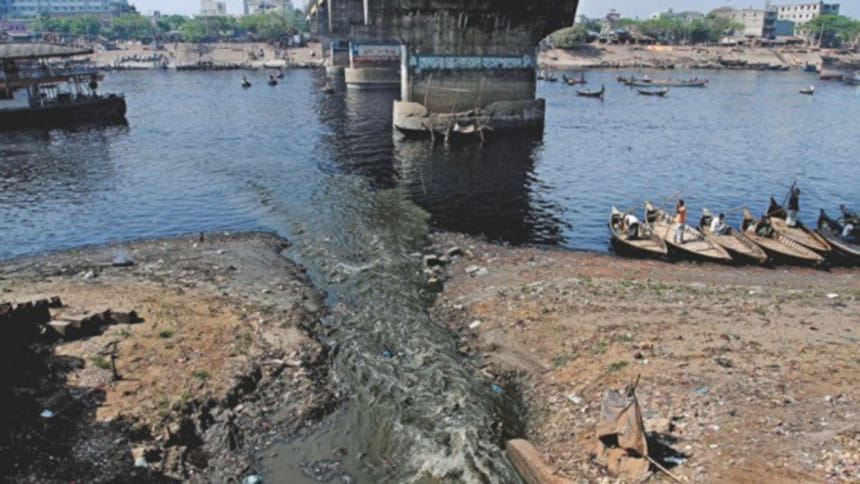The DoE must stop river polluters

The High Court on Tuesday directed the Department of Environment (DoE) to take necessary action against 30 washing plants in Keraniganj that have been polluting the Buriganga river. The court also issued a rule against those in charge of Titas Gas Transmission and Distribution Company Ltd (TGTDCL) and Rural Electrification Board (REB) "to explain why contempt of court proceedings should not be brought against them" for providing electricity and gas to the companies despite a prohibition order. While we welcome the HC's ruling and commend its dedication to seeing through this petition, we are also afraid that the parties involved may once again take advantage of the legal loopholes that are there and continue to operate as usual, polluting the Buriganga further.
The recent history of authorities dealing with environmental pollution paints a picture that is full of delays in decision-making as well as promises of change being broken. We think there has been an unbelievable level of indifference on the government's part when it comes to limiting the pollution of our rivers. These 30 washing plants in Keraniganj area dump waste into the Buriganga, polluting its water and environment unlawfully and in violation of court directives. Such levels of pollution have driven fish away from the river, and with them the livelihoods of local fishermen. The DoE had shut down the factories twice before, but they resumed operations each time.
The writ petition in question was filed by the organisation Human Rights and Peace for Bangladesh (HRPB) in May 2010. Delays in taking action against polluting industries may seem insignificant compared to how much the running of such industries benefits our economy. But it is important to remember that each hour of delay is worsening the already abysmal condition of the river, and that the damage may become irreversible if justice is not served speedily enough. So as we commend the HC's directive, we must also urge it to see this (and similar cases) through to its end, and to not further allow these companies to get off scot-free when it comes to river pollution.

 For all latest news, follow The Daily Star's Google News channel.
For all latest news, follow The Daily Star's Google News channel. 



Comments